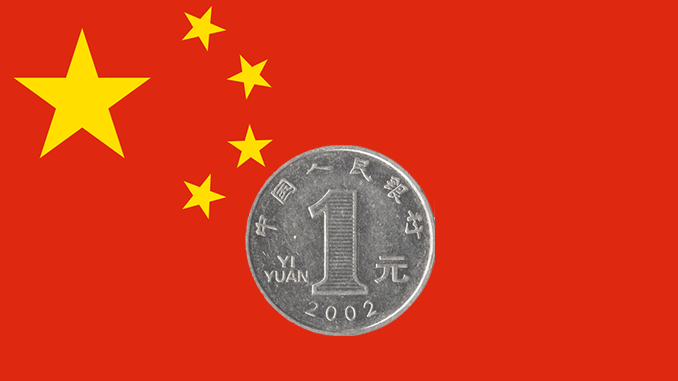
The intention of the leadership in China to launch an official E-Yuan is no longer a secret. Now the central bank is preparing legislative changes for it, insiders report. Technically, the basis for the Chinese digital currency should already exist.
Crypto and digital currencies as projects under the responsibility of state central banks are one of the very big current topics in the crypto scene. Sweden has recently pushed ahead and is already officially testing an e-Krone. But even more attention is focused on China, which has long since become a major economic power. Since autumn 2019 at the latest, it has been clear that the People’s Republic wants to introduce a digital currency. Now there are growing indications that the “China Coin” will soon come. For the usually well-informed Global Times reports that the central bank is working on a legislative package to create a legal environment for the digital yuan.
Background on China’s plans for the digital currency
When Facebook Libra was unveiled in June 2019, central banks around the world recognized that Facebook’s project had the potential to undermine their monetary sovereignty. Two conclusions were drawn from this: First, in line with fiscal policy, they made it clear that Facebook would have to expect far-reaching regulation. As a result, Facebook Libra has also stalled. On the other hand, however, many central banks and politicians understood that they had to offer their own solutions to citizens. Because the need for a secure and convenient digital currency for everyone exists. China is obviously prepared to take a pioneering role. For here the central bank is cooperating closely with the payment service Alipay, which is owned by the listed company Alibaba. In this year alone, Alipay has registered five patents, which revolve around the e-yuan, it is said.
In practice, this means: The People’s Bank of China as the guardian of the currency guarantees stability and legal certainty for the official digital currency. Alipay as the leading payment service in China ensures technical know-how and wide distribution from the very beginning. The central bank has also brought other local private companies on board. The reports are contradictory on the question of whether the e-yuan will become a real crypto currency based on a decentralised block chain or whether the state reserves the right to intervene centrally in case of doubt. Probably a hybrid of a block-chain-like network and central instance, similar to Ripple (XRP) or IOTA.
Conclusion: More than an experiment – China on the way to the e-yuan
Beijing’s turnaround in the crypto industry in autumn 2019 came as a surprise to many. When it was officially confirmed by Head of State Xi Jinping, the price of Bitcoin (BTC) temporarily increased by 40 percent. For observers and investors are largely in agreement: if China takes the e-yuan seriously, this will also have a positive impact on the acceptance of crypto-currencies worldwide. To give you an example: China has closely linked a number of developing countries to itself through joint infrastructure projects and could persuade them to accept the e-yuan. And the experiences of recent years show: Once people start thinking about crypto-currencies, they are not limited to just one. It is therefore important to keep a close eye on the development around the China coin.
Leave a Reply